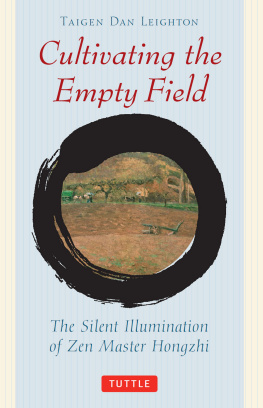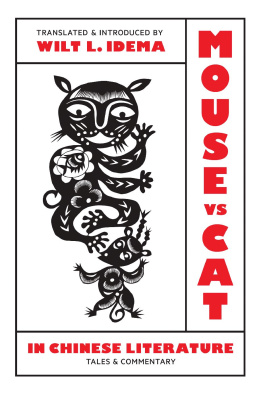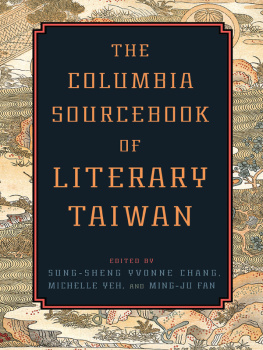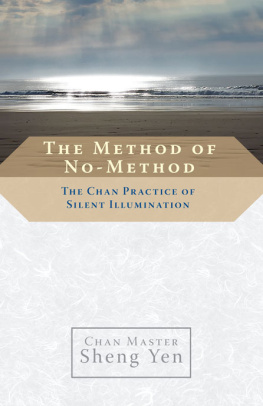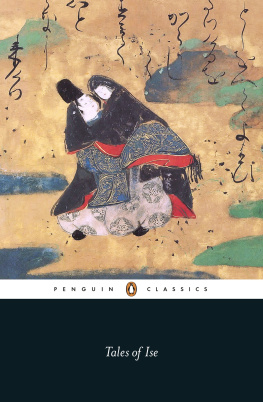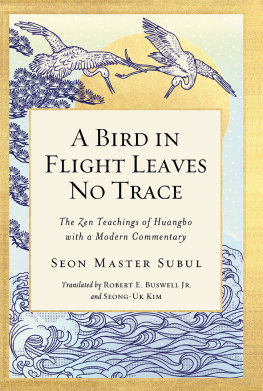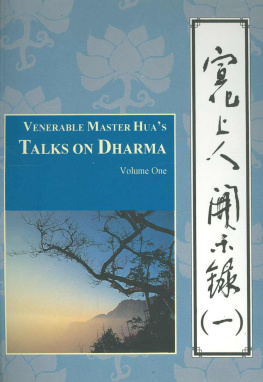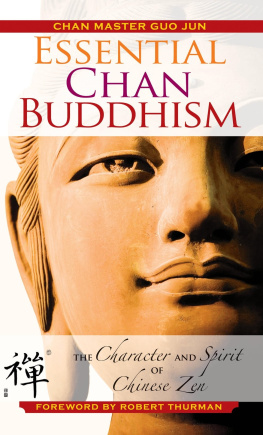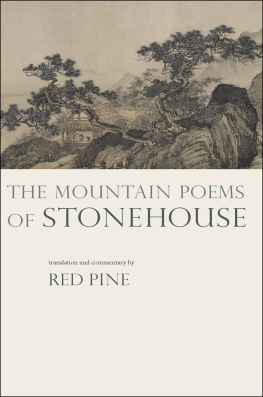APPENDIX A
Foundational Teaching Poems of Chinese St Zen
These three teaching poems by progenitors of the Caodong (Japanese: St) lineage are foundational to later teachings in the tradition, and are often referenced, directly or indirectly, by Hongzhi. The Song of the Grass-Roof Hermitage and the Harmony of Difference and Equality are by Shitou Xiqian (700-790; in Japanese Sekit Kisen), and the Song of the Precious Mirror samdhi is by Dongshan Liangjie (807-869; in Japanese Tzan Rykai), a successor three generations after Shitou. Dongshan is formally considered the founder of the Caodong school, which is in part named for him. The Harmony of Difference and Equality and Song of the Precious Mirror samdhi are foundations for this traditions philosophy, and its Dharma transmission. Shitous Song of the Grass-Roof Hermitage presents an important early practice model for St Zen which influenced Hongzhis silent illumination.
The translation of Song of the Grass-Roof Hermitage is by Taigen Leighton and Kazuaki Tanahashi, and appeared in an earlier form as the first published English translation in Windbell (1985). The following translations of the Harmony of Difference and Equality (in Japanese Sandkai) and of the Song of the Precious Mirror samdhi (in Japanese Hky Zammai) are based on translations done for the liturgy project of the Japanese St School (St shumuch). The translations were originally produced (with reference to previous renditions) by Carl Bielefeldt, Griffith Foulk, Taigen Leighton, and Shohaku Okumura, and later reviewed by a panel of American St Zen teachers.
Song of the Grass-Roof Hermitage
by Shitou Xiqian
Ive built a grass hut where theres nothing of value.
After eating, I relax and enjoy a nap.
When the hut was completed, fresh weeds appeared.
Now its been lived incovered by weeds.
The person in the hut lives here calmly,
not stuck to inside, outside, or in-between.
Places worldly people live, he doesnt live.
Realms worldly people love, she doesnt love.
Though the hut is small, it includes the entire world.
In ten feet square, an old man illumines forms and their nature.
A Mahayana bodhisattva trusts without doubt.
The middling or lowly cant help wondering;
Will this hut perish or not?
Perishable or not, the original master is present,
not dwelling south or north, east or west.
Firmly based on steadiness, it cant be surpassed.
A shining window below the green pines
jade palaces or vermilion towers cant compare with it.
Just sitting with head covered all things are at rest.
Thus, this mountain monk doesnt understand at all.
Living here he no longer works to get free.
Who would proudly arrange seats, trying to entice guests?
Turn around the light to shine within, then just return.
The vast inconceivable source cant be faced or turned away from.
Meet the ancestral teachers, be familiar with their instruction,
bind grasses to build a hut and dont give up.
Let go of hundreds of years and relax completely.
Open your hands and walk, innocent.
Thousands of words, myriad interpretations
are only to free you from obstructions.
If you want to know the undying person in the hut,
Dont separate from this skin bag here and now.
Harmony of Difference and Equality
by Shitou Xiqian
The mind of the great sage of India
is intimately transmitted from west to east.
While human faculties are sharp or dull,
the Way has no northern or southern ancestors.
The spiritual source shines clear in the light;
the branching streams flow on in the dark.
Grasping at things is surely delusion;
according with sameness is still not enlightenment.
All the objects of the senses
interact and yet do not.
Interacting brings involvement.
Otherwise, each keeps its place.
Sights vary in quality and form,
sounds differ as pleasing or harsh.
Refined and common speech come together in the dark,
clear and murky phrases are distinguished in the light.
The four elements return to their natures
just as a child turns to its mother;
Fire heats, wind moves,
water wets, earth is solid.
Eye and sights, ear and sounds,
nose and smells, tongue and tastes;
Thus with each and every thing,
depending on these roots, the leaves spread forth.
Trunk and branches share the essence;
revered and common, each has its speech.
In the light there is darkness,
but dont take it as darkness;
In the dark there is light,
but dont see it as light.
Light and dark oppose one another
like the front and back foot in walking.
Each of the myriad things has its merit,
expressed according to function and place.
Phenomena exist; box and lid fit.
principle responds; arrow points meet.
Hearing the words, understand the meaning;
dont set up standards of your own.
If you dont understand the Way right before you,
how will you know the path as you walk?
Progress is not a matter of far or near,
but if you are confused, mountains and rivers block your way.
I respectfully urge you who study the mystery,
do not pass your days and nights in vain.
Song of the Precious Mirror Samadhi
by Dongshan Liangjie
The dharma of thusness is intimately transmitted by buddhas and ancestors;
Now you have it; preserve it well.
A silver bowl filled with snow; a heron hidden in the moon.
Taken as similar, they are not the same; not distinguished, their places are known.
The meaning does not reside in the words, but a pivotal moment brings it forth.
Move and you are trapped; miss and you fall into doubt and vacillation.
Turning away and touching are both wrong, for it is like a massive fire.
Just to portray it in literary form is to stain it with defilement.
In darkest night it is perfectly clear; in the light of dawn it is hidden.
It is a standard for all things; its use removes all suffering.
Although it is not constructed, it is not beyond words.
Like facing a precious mirror; form and reflection behold each other.
You are not it, but in truth it is you.
Like a newborn child, it is fully endowed with five aspects:
No going, no coming, no arising, no abiding;
Baba wawais anything said or not?
In the end it says nothing, for the words are not yet right.
In the illumination hexagram, inclined and upright interact,
Piled up they become three, the permutations make five, Like the
taste of the five-flavored herb, like the five-pronged vajra.
Wondrously embraced within the real, drumming and singing begin together.
Penetrate the source and travel the pathways; embrace the territory and treasure the roads.
You would do well to respect this; do not neglect it.
Natural and wondrous, it is not a matter of delusion or enlightenment.
Within causes and conditions, time and season, it is serene and illuminating.
So minute it enters where there is no gap, so vast it transcends dimension.
A hairsbreadths deviation, and you are out of tune.
Now there are sudden and gradual, and teachings and approaches arise.
When teachings and approaches are distinguished, each has its standard.
Whether teachings and approaches are mastered or not, reality constantly flows.
Outside still and inside trembling, like tethered colts or cowering rats,
The ancient sages grieved for them, and offered them the dharma.
Led by their inverted views, they take black for white.

